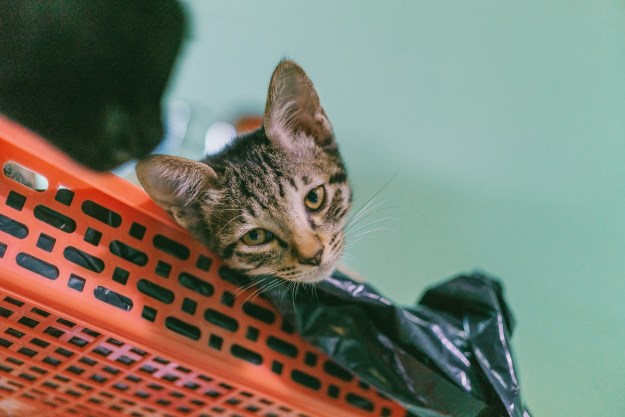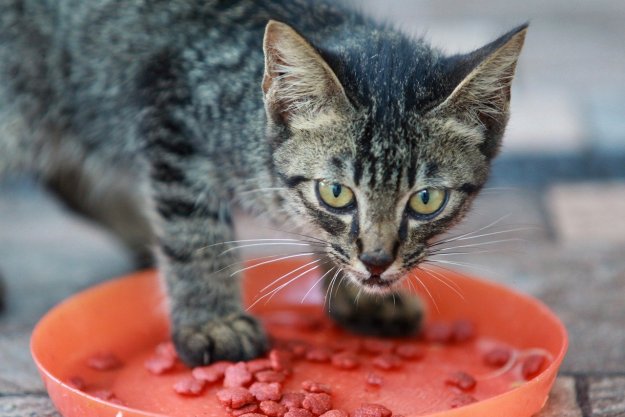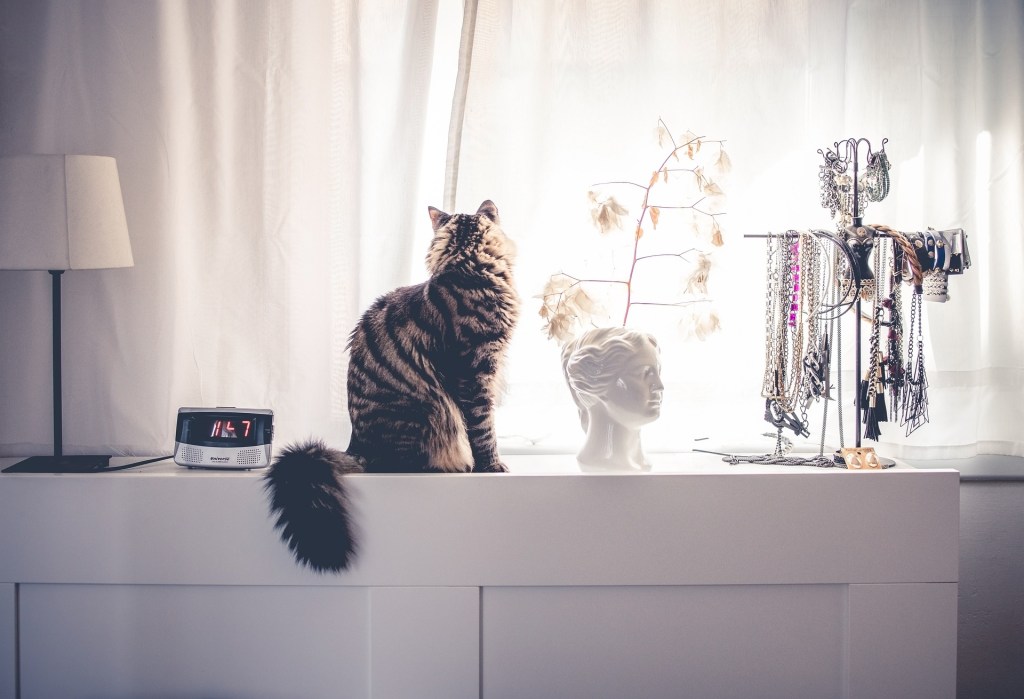
If bird-watching is your cat’s idea of a good time, it’s possible you’ve heard him chirping. Tail swishing, eyes wide and trained on his potential prey, a series of strangely adorable sounds emits from your furry companion. Chirping, also known as chattering, sounds nothing like your cat’s usual meow. But don’t be alarmed if you’ve never heard your cat chirp before.
While some frisky felines are chatterboxes, others are silent and stealthy. So, what’s the cause of this unusual sound? Why do cats chirp? And more importantly, what do these unusual noises mean?
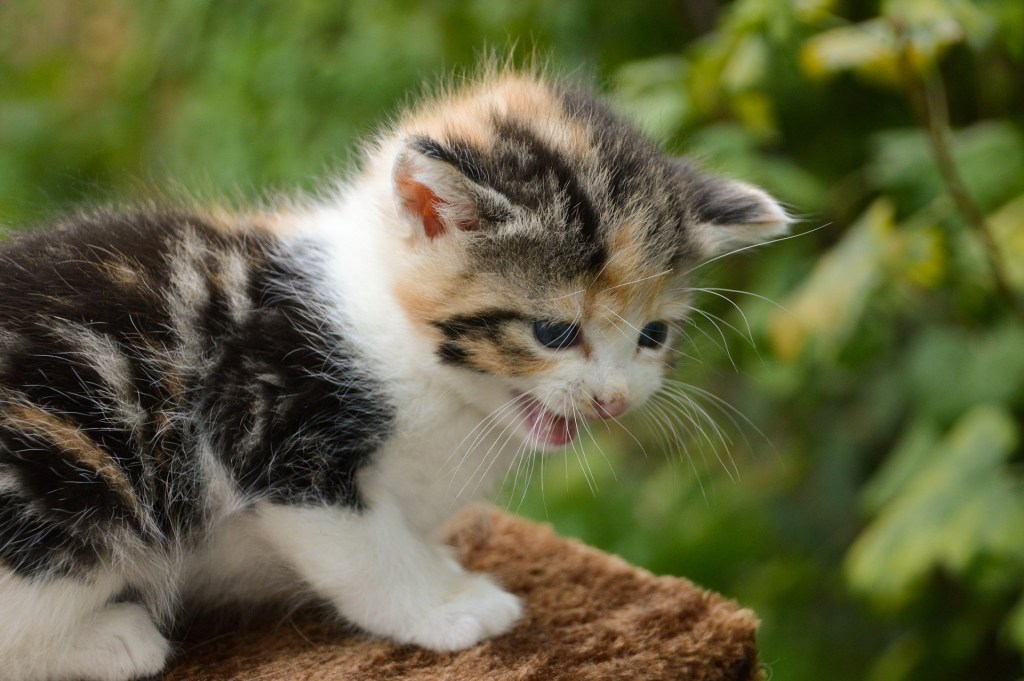
Why do cats chirp?
As with many cat behaviors, we’re still trying to understand precisely why cats chirp. However, cats seem to chirp out of excitement.
You can understand this if you watch your cat’s body language when he’s chirping. Chances are, his eyes are wide and focused on something, and he may have stretched his head out, trying to get a better view of what’s going on. You might notice that your cat flicks his tail, crouches down, and tenses his body. There’s an intense focus behind this behavior.
If your cat chirps when he sees you, he may be greeting you or trying to get your attention. You’ll probably notice those same signs of eagerness and focus, but your cat might be slightly more relaxed, walking around or even rubbing against your legs. He may be chirping to say hi or hoping to get you to feed him or play with him.
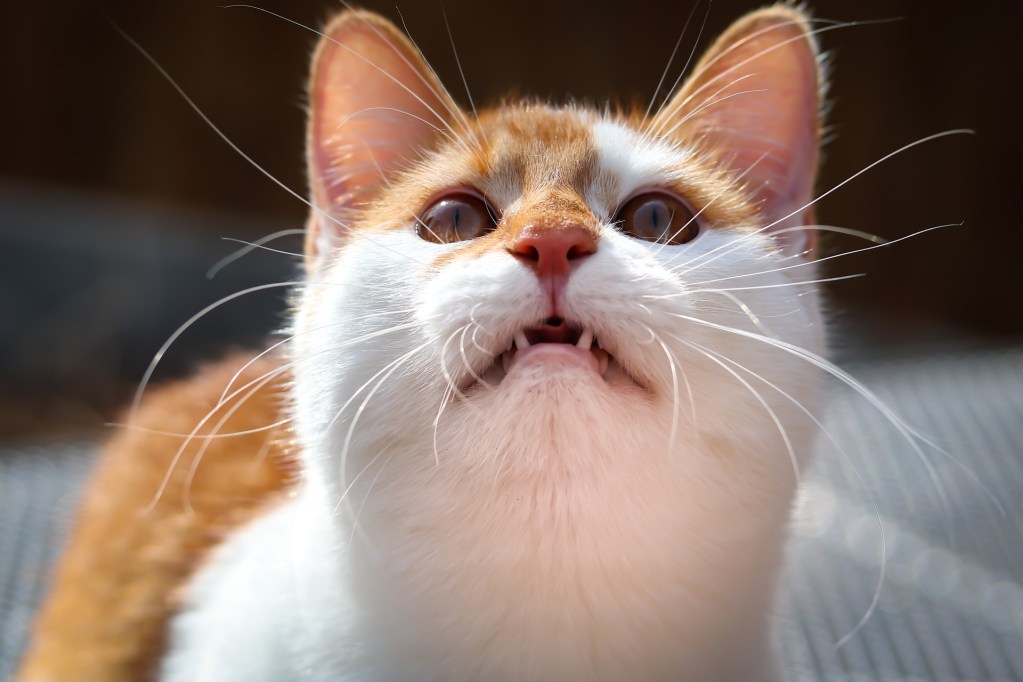
How to recognize when your cat is chirping
When cats chirp, it almost sounds like they’re mimicking a bird. They often make a short series of peeps or trills, and the sound seems to come from the back of their throat. Some cats chirp while barely opening their mouth, while others develop more of an open-mouthed chatter.
Whatever your cat’s style, his chirping is probably a series of sounds directed at something — a bird, a toy, or even you. Chirping is a quieter noise, like an under-the-breath sound, but it’s so unusual that it’s likely to catch your attention when you hear it.
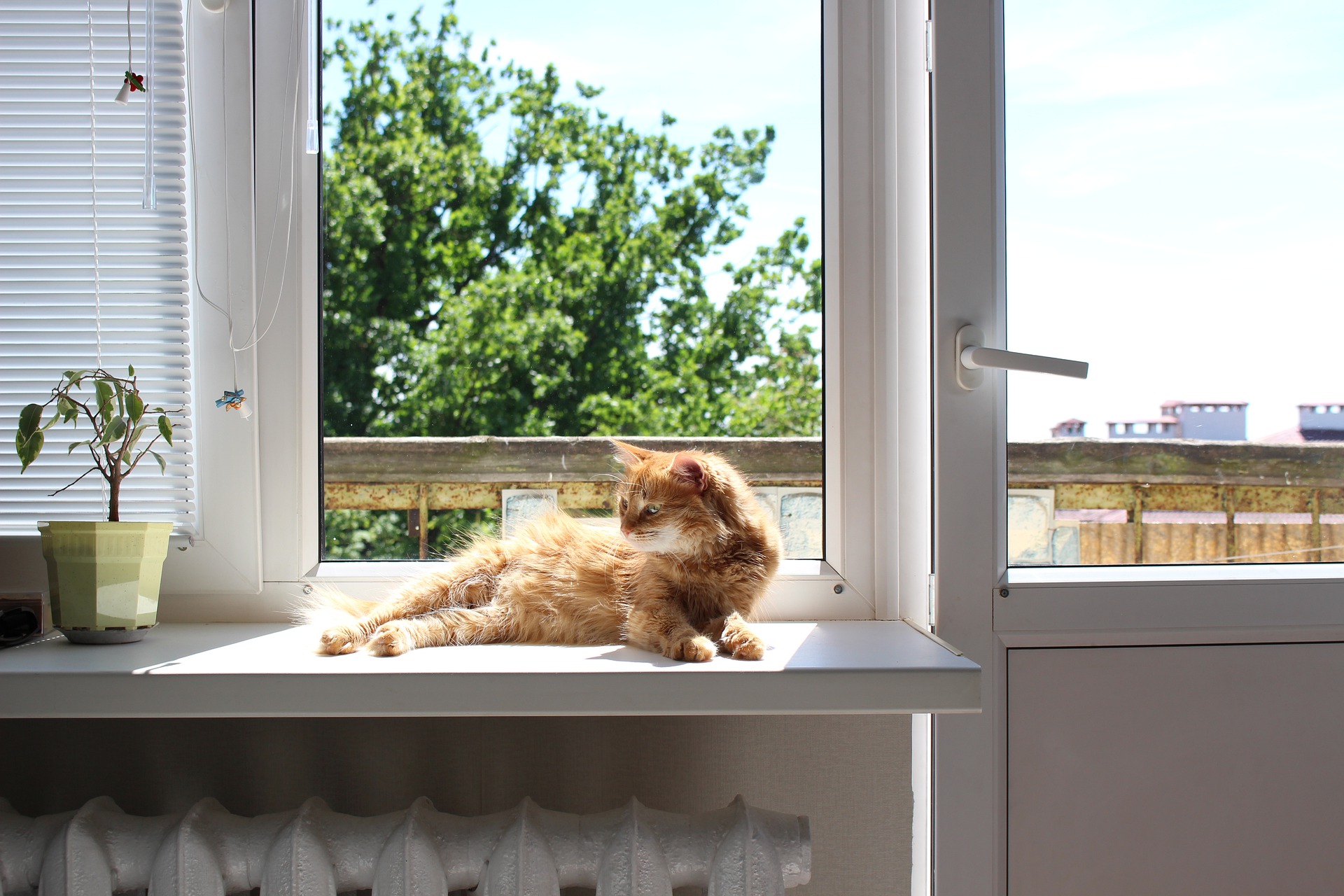
How to react when your cat is chirping
When your cat is chirping at you, the best thing you can do is figure out what he wants. He might want you to pat him or pay attention to him, and he’ll probably reward you by purring and walking around you in circles. Some cats may chirp because they’re hungry and are prompting you to get out the cat food. Try reacting in a number of ways and see if what you do satisfies your cat.
If your cat is chirping at birds frequently, he may be excited by their presence and frustrated that he can’t get outdoors to hunt them. Some cats will go as far as to stalk their prey and attempt to pounce on them through the window.
Not being able to satisfy his natural hunting instinct can be frustrating for an indoor-only cat, so consider finding ways to help your cat “hunt” inside. Toys that squeak and have different textures and movements can help pique your cat’s interest. Playing with toys on a string can give your cat a good workout, helping to keep him healthy and entertained. Even getting a second cat can encourage your cat to stay active, providing him with a playmate.
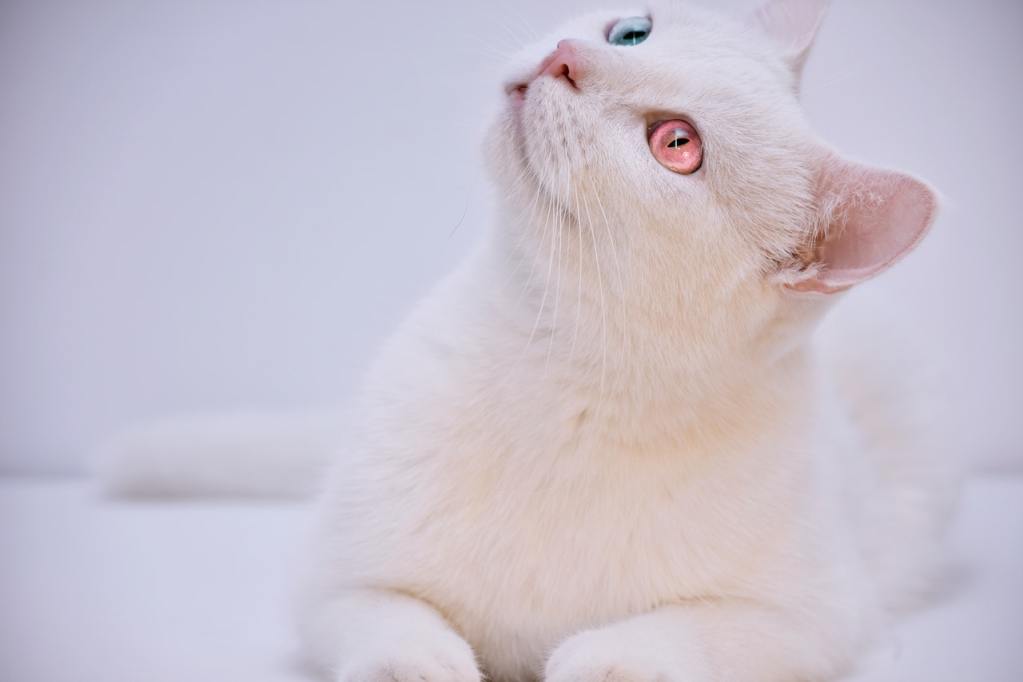
Are cats stressed when they chirp?
Define stressed. Sometimes, cats chirp when they see prey, like birds or squirrels, but are unable to attempt to pounce. In these situations, a cat is excited to see the small animal but frustrated that they cannot tap into their natural hunting instincts. Cats are natural predators. While we’ve taken the kitties out of the wild and domesticated them, the wild hasn’t completely left the kitties.
Though the cat may be a tad frustrated and disappointed, pet parents should still keep their feline friends inside. Doing so keeps the cat safe from predators and cars. Cats living indoors usually have longer life spans.
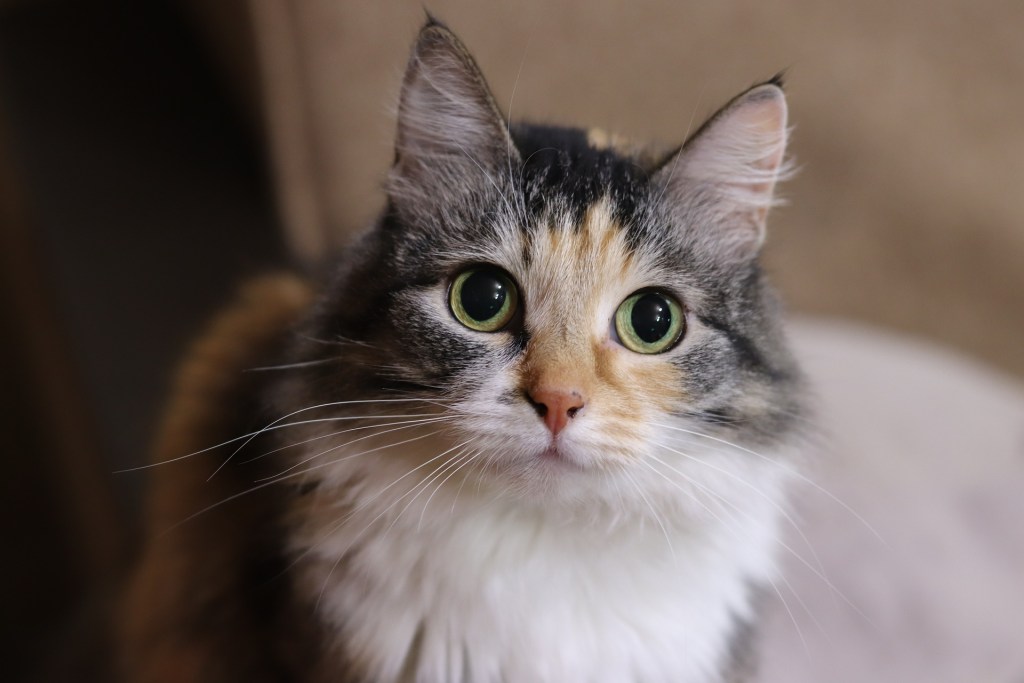
Final thoughts on cats chirping
If your cat is chirping, it isn’t a bad thing. He’s communicating, whether that’s with you or with the birds outside the window. Cats use noises to convey all sorts of different things, and in most cases, a cat who is chirping is excited or trying to get your attention.
If you’re attempting to understand why your cat chirps, spend some time watching him and pay attention to his body language. The more carefully you observe your cat, the more you’ll learn about his behavior. You might find that your cat is chirping because he wants something specific, and by playing with him, interacting with him, or even feeding him, you’ll be giving him just what he wants.
Editors' Recommendations
- Why do cats’ eyes dilate? What your pet’s extra big peepers mean
- Cats chirping at birds is totally normal (and here’s why you should encourage it)
- Why do cats twitch in their sleep? The real reasons behind this curious behavior
- Why do cats cover their face when they sleep? This adorable behavior, explained
- Is your cat obese? 5 ways to help them slim down
